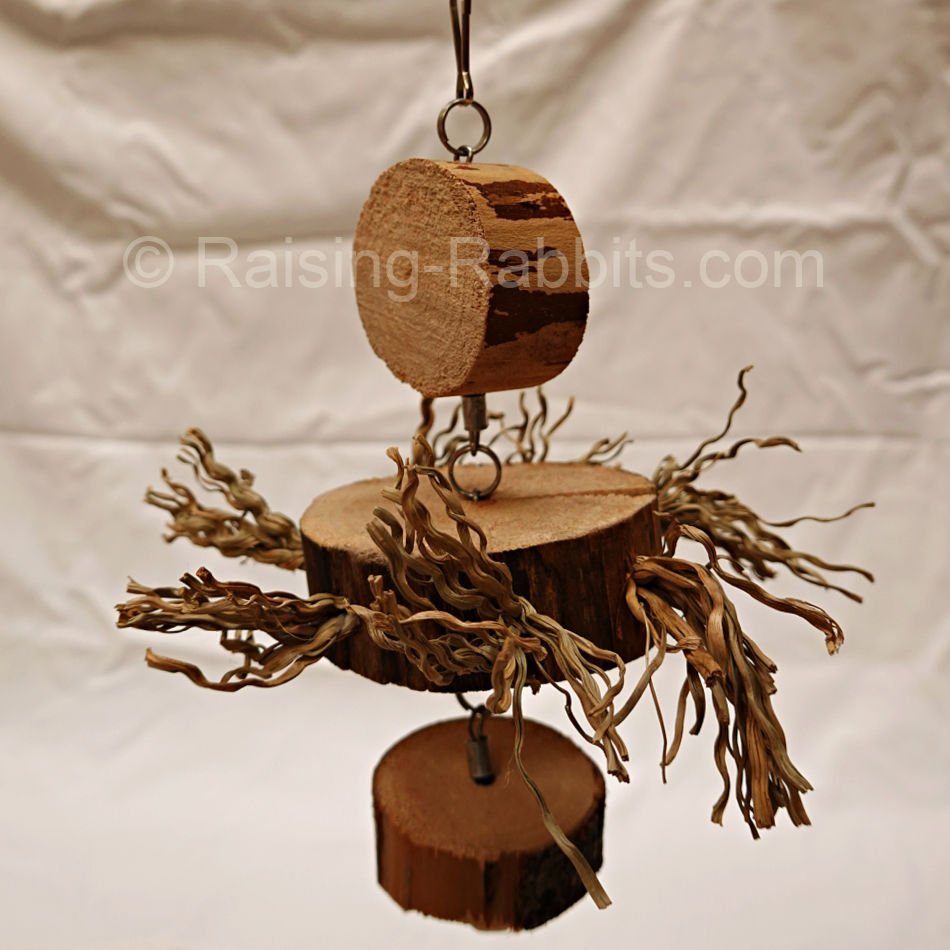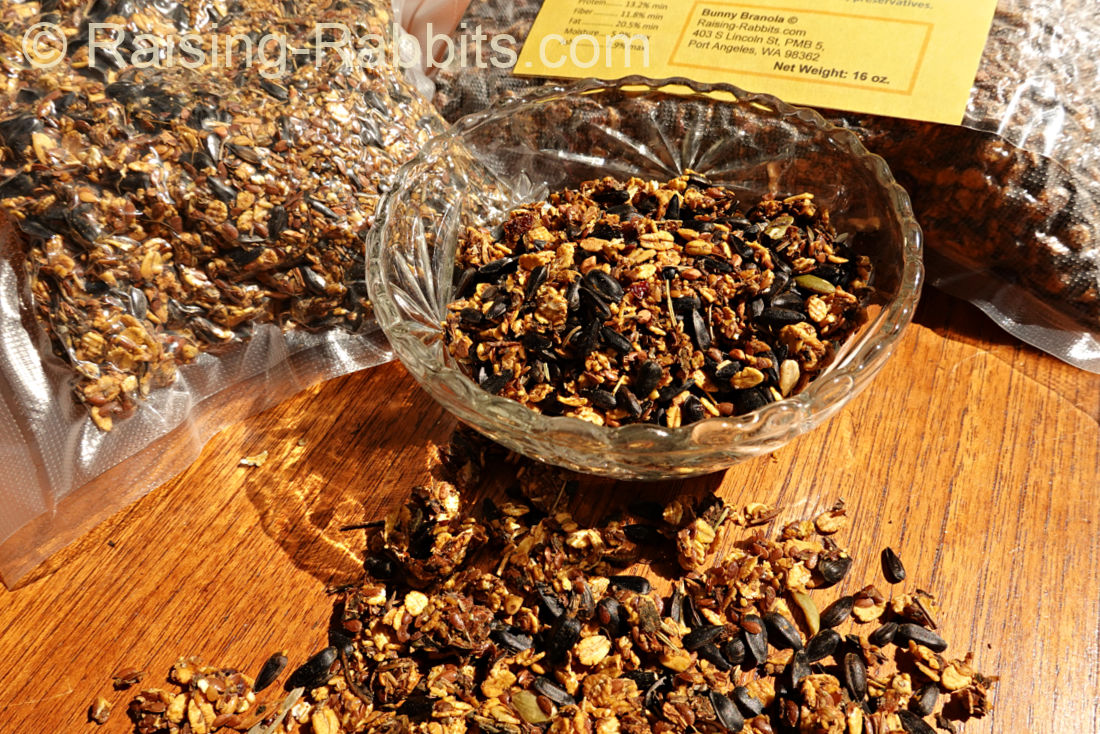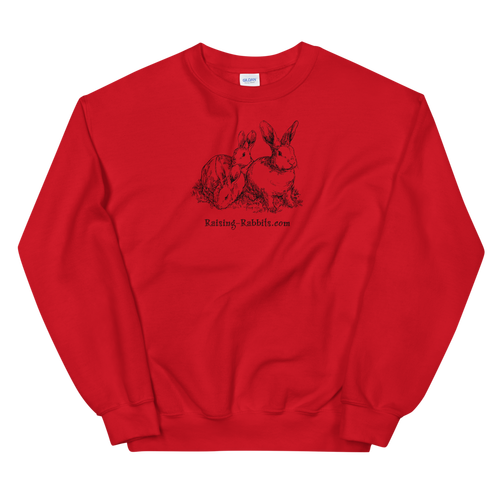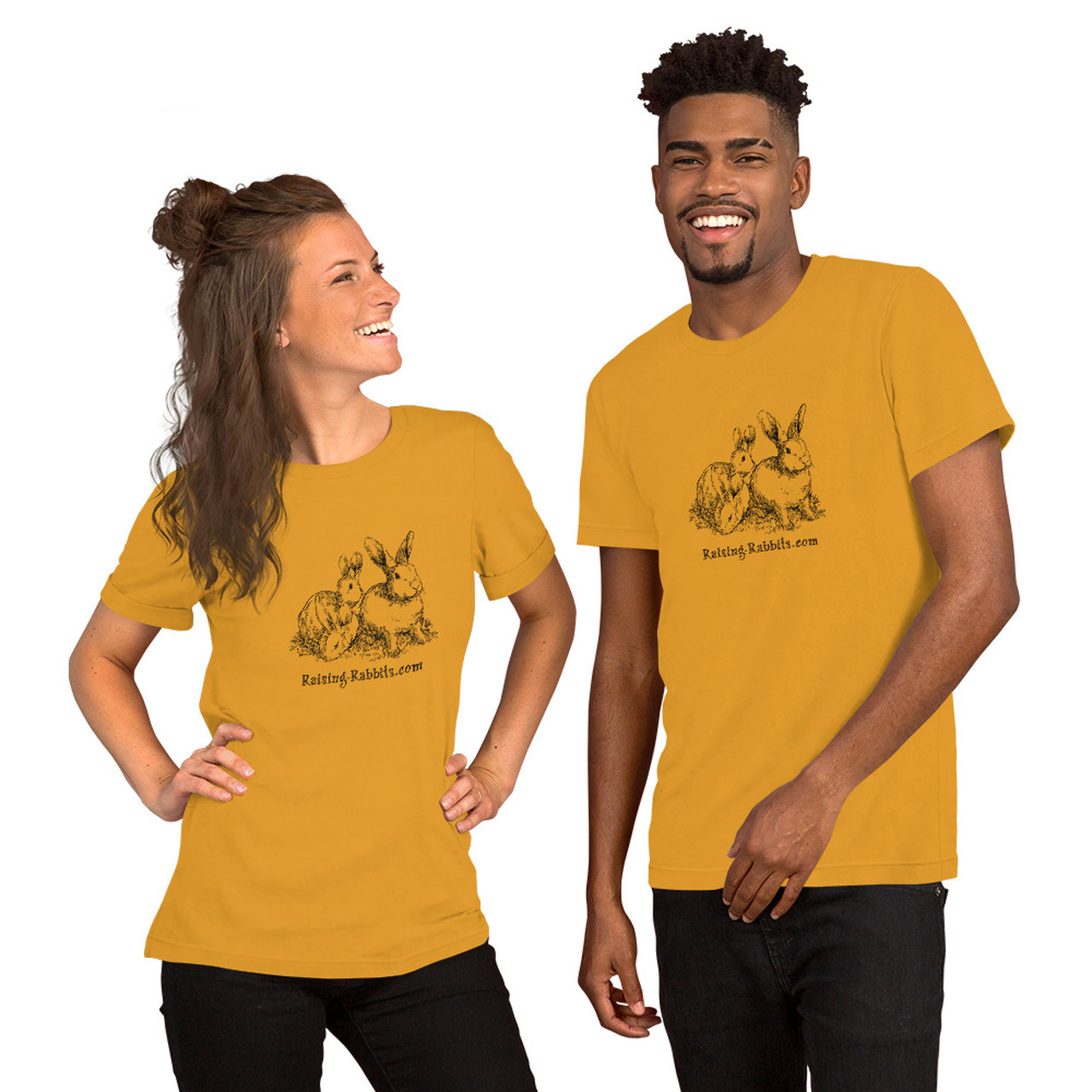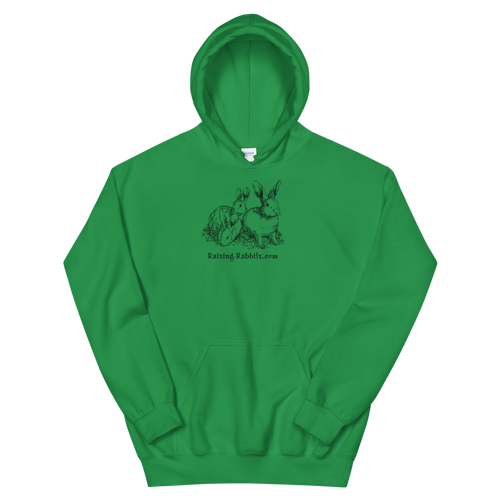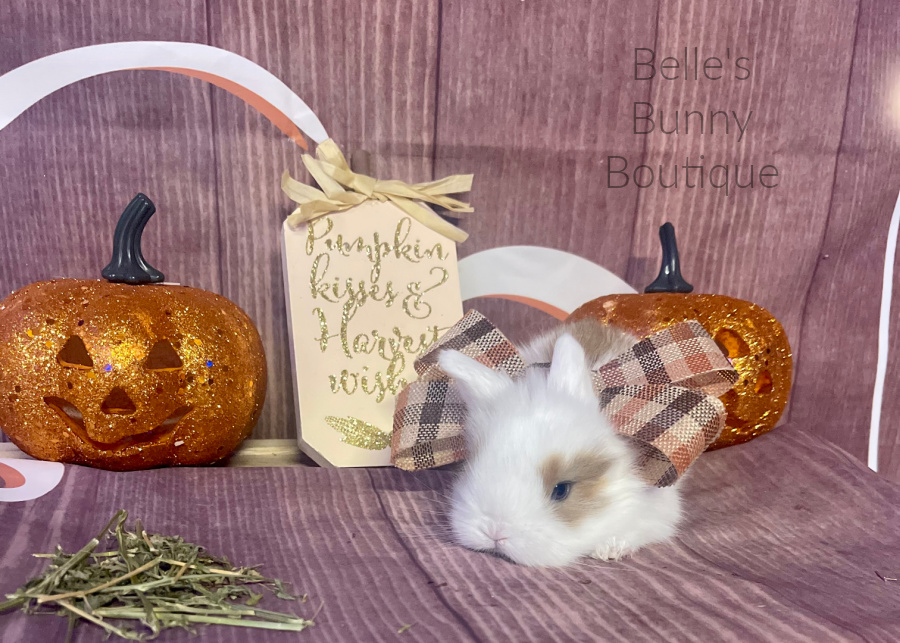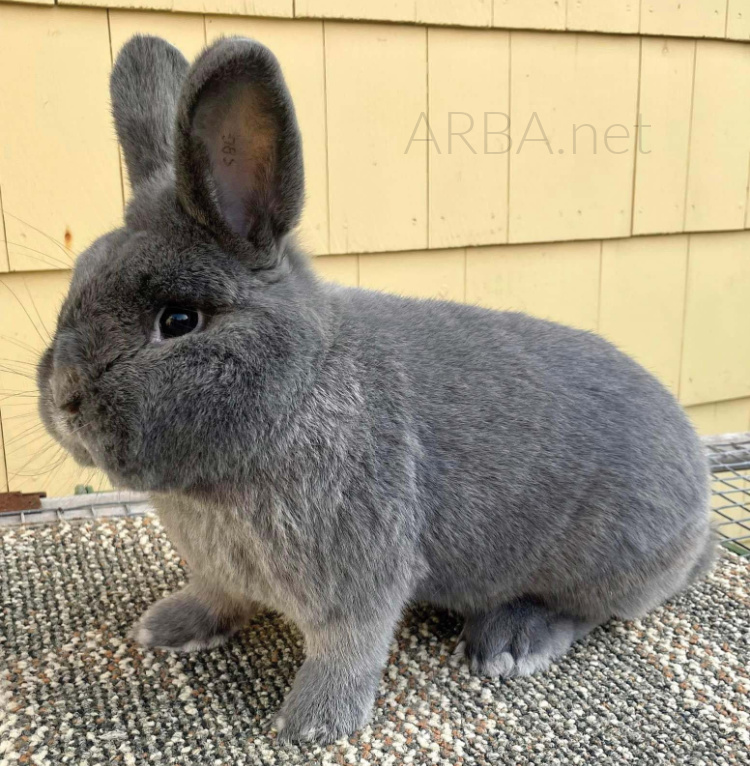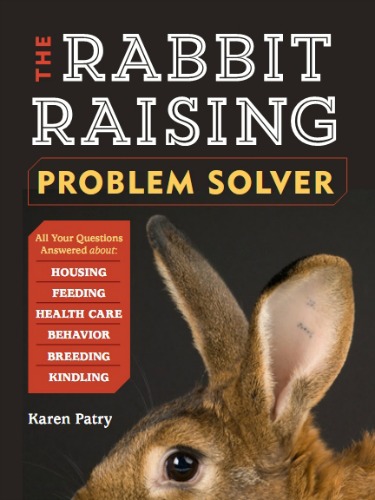Many Rabbits Dying
Hello, I've been having a problem with my rabbits for the past few months. My doe has given birth to two litters. Of the past litter, all the bunnies died after about one month of birth, most of them from dehydration.
Of the current litter, one died two days ago and one died today, both presumably from dehydration. They are 1 month and 1 week old.
It is always the same, they are fine one day and the next day I find them in the cage not wanting to move, not having any strength and having trouble keeping their eyes open. They start doing random movements, and it looks like they are moving unconsciously.
I have not been able to find hay in any pet store, and I wonder if this may be a problem. By the time we take them to the vet they usually last about half an hour and die. There have never been any signs of diarrhea. I don't know what to do!
***** Karen Sez *****
Ugh, so sorry for your troubles. So, an entire litter died at roughly 4 weeks old, and now the second litter is showing signs of perishing of the same symptoms, this time at 5 weeks old.
My first impression is that there might be an infectious organism or parasite in the environment at play here. Did the vet not do any culture and sensitivity on the bunnies' droppings and/or nasal passages? This would help you both know which culprit is killing your kits. In the meantime, disinfect your cages, carriers, water bottles, feed bowls, litter box, nest box, everything around the rabbits. Is the doe exhibiting any kind of symptoms herself? Does her stool loosen periodically, or does her nose get damp occasionally? Does she occasionally sneeze a bit? I’m just tossing around for clues of any sort.
Secondly is a somewhat more likely scenario: An unnatural feeding protocol can seriously upset a bunny's digestion to the point of enterotoxemia and death, and it can look just like you describe. Enterotoxemia is the result of a bloom of disease bacteria in the rabbit's hind gut as a result of a dietary imbalance - usually too much carbs (in relation to other nutrients) and too low fiber. An inflammation occurs in the intestines, which swell with liquid mucus and watery droppings. Bacterial toxins flood the blood stream causing sepsis and impending circulatory collapse. If the collapse occurs before the diarrhea does, the rabbit dies rapidly with no symptoms, just as described.
Were these my rabbits, I’d still want a vet opinion to rule out any other infections or causes. But now, it will be very important to reevaluate how you care for your rabbits, and especially what you feed them. If your only source for rabbit feed is a pet store, then you have many choices for rabbit food - 90% of which may be outdated, possibly moldy, and unbalanced with sweetened colorful pieces that the rabbits pick out first and then reject the healthier green pellets.
Moldy feed adds an additional layer to the problem as the aflatoxins in mold can themselves kill rabbits. But in this case I’d expect more rabbits than just the babies to be showing symptoms. You can get the feed tested for the presence of mold. If you cannot find any other likely culprit, then discard all the rabbit’s feed and purchase fresh feed (within 60 days of manufacture – if no date stamp, don’t buy).
Are you feeding grocery store greens? You know, the ones liberally coated with pesticide residue? Too many apples? For example, look at your apples where the stem joins the apples. That ugly grey/white/black residue is pure poison for both people and rabbits, and it’s all over the apple, though most visible at the stem.
Any veggies not grown pesticide-free represent danger to rabbits, because those residues will kill some of the gut bacteria that the rabbit depends on for its survival. Upset the gut flora, and the rabbits can die. (Young kits between 4 weeks to 9 weeks are the most susceptible to enterotoxemia.)
If you have no other source of 'people food' for your bunnies, then wash your produce in warm soapy water before feeding to either yourself or your bunnies. (I suggest NO people food whatsoever, until you've figured out the cause of the bunny deaths.)
About pelleted rabbit feed, find the stuff that is only green, with no fancy colors or pieces in it. The best place to purchase fresh healthy pellets is a feed store. If your only option for feed is the pet store, find a fresh green pelleted feed that is balanced nutritionally: 15% or more protein, 19% or more fiber, and somewhere between 2-5% fat. (Sometimes Walmart carries a decent rabbit pellet.)
Does your pet store not carry hay? Then order some online ahead of time. Our Raising-Rabbits Store carries hay. Our Raising-Rabbits Amazon Store carries hay. Or, drive out to a country feed store. In some areas you can by an entire 100+# bale for $15. Of course, that's a lot of hay, but there are alternatives: a bag of timothy hay cubes, or hay pellets. Both of these have very long shelf lives - they'll last a long time without going bad as long as they stay dry.
Having brainstormed to this point, you already know that Raising-Rabbits has no vets on staff, though the above is based on research and lots of experience. DO get a vet opinion should you continue to have problems.
In the meantime, now is the time to revisit your rabbit husbandry practices. Follow the guidelines on Raising-Rabbits, or get Karen's book, Rabbit Raising Problem Solver, which is even more comprehensive. (See https://www.raising-rabbits.com/rabbit-raising-problem-solver.com for more info.)
Obtain the hay, the probiotics (Benebac, Probios, etc.), the fresh feed, etc., so you’ll be able to prevent problems the next time around.
Hope this helps. Good luck, and God bless you!
Comments for Many Rabbits Dying
|
||
|
||
|
||
|
Click here to add your own comments Join in and write your own page! It's easy to do. How? Simply click here to return to Comments. |
Double-Value Guarantee
Our policy is to always OVER-deliver
on value,
which is why your purchase is fully covered by our
Double-Value
Guarantee.
Go ahead - take any of our e-books for a test drive. Peruse our detailed informational and educational e-books. Examine our plans for building rabbit cages, runs, or metal or PVC hutch frames. Check out the Rabbit Husbandry info e-books.
If you aren't completely satisfied that your e-book purchase is worth at least double, triple or even quadruple the price you paid, just drop us a note within 45 days, and we'll refund you the entire cost. That's our Double-Value Guarantee.
Note: When you purchase your
e-books, they will be in PDF format, so you can download them to any device that
supports PDF format. We advise making a back-up copy to a drive or cloud
account. If the books are lost, you can also purchase another copy from Raising-Rabbits.
